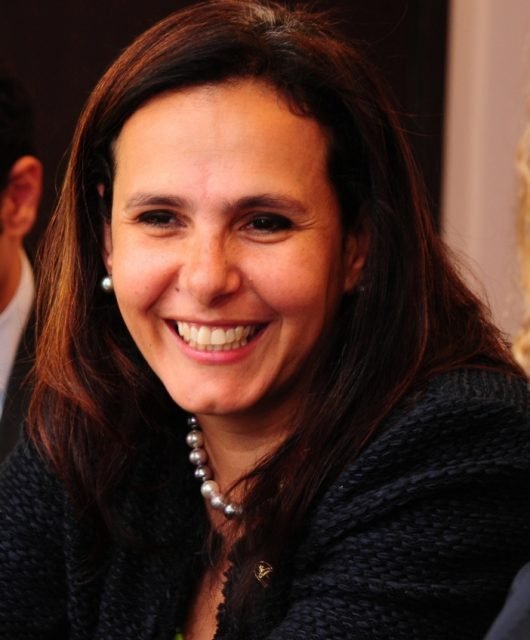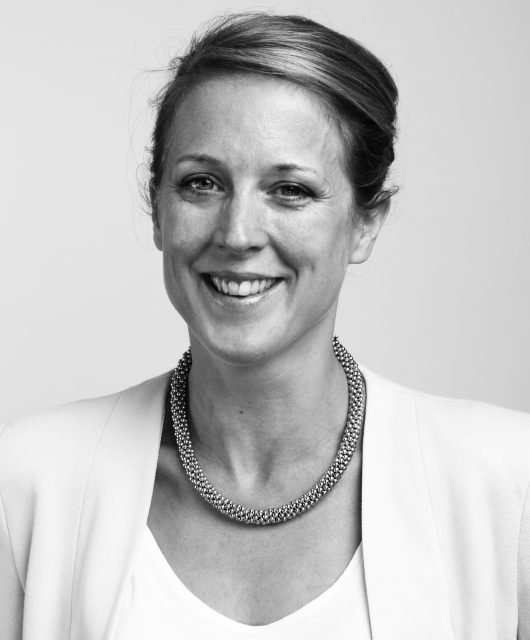Building A Purpose-Driven Brand: Q&A With Coca-Cola’s Kathryn Casson

KC: There are two good examples of this recently. First, in recognition of changing consumer needs and preferences about sugar consumption, we’re constantly evolving to give people around the world more of the drinks they want and how they want them. We’re now providing smaller, more convenient packages; innovating and introducing new lower and no-sugar drinks; and reducing sugar in existing drinks around the world. This is our new way forward.And second, just last month, we announced a global commitment for a World Without Waste – our goal to collect and recycle the equivalent of every bottle or can we sell globally by 2030. No one wants to see plastic waste ruining our environment and our oceans. As Coca-Cola, we know we can and must use our leadership position to make a difference.
BB: In order to cut through the noise, brands have to get more sophisticated in their methodology and create impact. How can brands move from being socially responsible to being socially impactful?
KC: The Middle East and North Africa is one of the most water-stressed region in the world. In 2007 Coca Cola set our Replenish Goal, a first for the beverage-producing private sector, which committed us to “replenish” or return 100 percent of the water Coca-Cola uses in its global sales volume by 2020. In 2017 alone, the Coca-Cola Company has returned 1.75 billion litres of water to nature and communities across the MENA region and we are working hard to accelerate progress.
Working with our partners across the MENA region, the Company is making a meaningful impact by funding projects that provide clean drinking water, water that can be used in agriculture, or protecting watersheds. We also have ambitious targets to reduce water used in our production process and these targets are constantly monitored. By going into communities and establishing a significant on-ground presence, we are seeing first-hand the value that the private sector can contribute to communities and the environment.
BB: Coca-Cola is known to be among the top global brands with a plan for sustainable living. What drives the sustainability strategy of Coca-Cola?
KC: Sustainability is in Coca-Cola’s DNA! As a global brand, we understand that we have a responsibility to lead by example. We also know that consumers are demanding that brands represent their values and can be trusted to be a force for good in society and the environment. In fact, in the Middle East and North Africa alone, over 70% of consumers are willing to pay extra from companies who are committed to having a positive social and environmental impact, according to a study by Nielsen.
But it’s not enough anymore for brands to just talk about social responsibility, or treat it as a charitable afterthought. Traditional CSR is giving way to more innovative thinking about how to achieve the change we want to see by embedding it throughout the entire production process – from the beginning of the supply chain to the point of sale. Like our 5by20 initiative, which aims to bring women into the Coca-Cola value chain; and our sustainable agricultural commitments, through which we strive to procure ingredients in a sustainable way, protecting farmers and so on.
In essence, we see that acting socially responsible is not only positive for society, but vital for the success of the company and economic productivity as well. We call this Shared Value.
Our progress against our 2020 Sustainability Goals can be found in our latest sustainability report.
BB: One of Coca-Cola’s global sustainability flagship initiatives is “#5by20”, an initiative that caters to global women empowerment from all walks of life. Please elaborate on the initiative with a mention on Coca-Cola’s efforts to empower women of the Middle East?
KC: The evidence is clear that investments in women’s economic empowerment and business success have a significant positive impact on families, local economies and communities. And in MENA, women’s participation in the economy is low compared to other parts of the world. So the challenge and the opportunity is huge.
5by20 is the Coca-Cola Company’s global initiative to enable the economic empowerment of 5 million women entrepreneurs by bringing them into the Company’s value chain by 2020. By the end of 2016, Coca-Cola had enabled more than 1.75 million women through the program in 64 countries globally.
The Company prioritizes bringing low income women into its value chain as part of this global commitment. Women can play a role as producers of ingredients, distributors or retailers of Coca-Cola products, recyclers of packaging, or artisans. In Egypt for example we have given more than 4000 low income women the opportunity to become Coca-Cola vendors, by giving them coolers, product and business training. We are hoping to do the same in Sudan soon.
BB: Coca-Cola has always been a firm believer in the following statement “We believe our business thrives when our communities thrive”. Can you shed some light on what Coca-Cola is doing to give back to communities in the MENA region?
KC: At The Coca-Cola Company, we recognize that we cannot have a healthy and growing business unless the communities we serve are healthy and sustainable. Our community investment priorities reflect the global and local nature of our business and focuses on those global pillars where The Coca-Cola Company can make a unique and sustainable difference: recycling plastic waste, water stewardship, women. In addition to these global Company commitments, in the MENA region we have added an emphasis on youth empowerment.
The Coca-Cola MENA Scholarship Program ran for 6 years. It was a partnership with the US Department of State, that sponsored university students from MENA countries to attend a month-long business program focused on entrepreneurship at Indiana University’s Kelly School of Business. With a young, dynamic and energetic youth population across the region, the program has been designed specifically to provide training and guidance to help bring innovative ideas to life to help transform economic and social opportunity across the region.
Since the program was founded in 2012, 500 university students have participated. Alumni have gone on to secure almost 100 other higher education scholarships, and 108 scholars have already started their own businesses after returning from the program. These span a variety of sectors including enterprise technology, mobile app services, hospitality and tourist sector services, environmental services, and digital media services. One team of students from Palestine, developed a business for using waste material from olive oil production to produce fuel bricks; and another team from Jordan designed a business that rents quiet working space to university students in Jordan.
To date, students from Algeria, Saudi Arabia, Jordan, Egypt, Morocco, Tunisia, Palestine, Pakistan and Afghanistan have participated in the program..
BB: Coca-Cola’s sustainability efforts began over 100 years ago and have since become an integral part of the company with countless sustainability projects. Please comment with a highlight on the way forward for Coca-Cola’s sustainability strategy in the region? What initiative are you eyeing on 2018?
KC: Our “World Without Waste” vision is our top priority for 2018. Our CEO James Quincey announced on January 18th an industry-first goal to collect and recycle the equivalent of every bottle or can it sells globally by 2030. Through our ‘World Without Waste’ vision, we are investing in our planet and in our packaging to help eliminate the scourge of plastic waste.
We will also continue and accelerate our work on water neutrality in MENA so we reach the Company’s goal of replenishing 100 percent of the water we use by 2020. As the most water scarce region in the world, water replenishment will continue to be a central pillar of our sustainability efforts here in the Middle East and North Africa.
In 2018, Coca-Cola plans to launch new projects across MENA in Iraq, Lebanon, Jordan, Egypt, Pakistan, Algeria, Morocco and will extend our replenish work to reach Sudan for the first time, bolstering drought and humanitarian response efforts.
These projects vary in design and scale, but all operate to either provide people with access to safe water and sanitation services, provide water for productive agricultural use such as irrigation, or protect environments and natural water sources from degradation and depletion. To date, Coca-Cola and its philanthropic Foundations have implemented over 25 replenishment projects throughout the MENA region.





